As is often the case, meals can spur life-altering conversations…
What a gift to have my grandmother still with us - I so wish that she lived nearby.
So much is encompassed in that “Does it matter?” - it’s another story for another time, but my dad has his reasons for feeling alienated from China and Hong Kong. He’s very Westernized and has never looked back. Yet this sentiment explains so much about why I never grew up hearing our ancestral stories, why I had to learn Asian history and literature on my own, and why my sense of ethnic identity has always been nebulous. I’ve craved specificity my whole life.
It matters.
As Angela Y. Davis writes, “Deprivation of ancestry affects the present and the future.”
Due to my lack of consciousness about my ancestry, I haven’t known how to place myself other than as abstractedly Cantonese. The stories I read by and about Hakka people were interesting, but I couldn’t claim them as my own.
This impulse to clarify one’s roots and construct a more well-defined family tree is not unique. Lisa Sharon Harper wrote an entire book (Fortune: How Race Broke My Family and the World and How to Repair It All) in which she utilizes DNA testing, family stories, and personal research to trace her lineage back to her earliest U.S.-based ancestors, unearthing powerful stories about her indigenous and enslaved forebearers. At some point in life, most of us want to know, Where did I come from? Who came before me? Correct or not, we feel that our origins might explain something about our lives, our inclinations, and our purpose in this world.
Without knowing myself, where I came from, the struggles of my ancestors, and the broader sociopolitical context in which I exist, I can’t bring those unrecognized parts of myself to God. Knowing my history helps me stand rooted in my origins, recognize generational and communal trauma, repent, and heal. For those of us whose cultural heritage has been deemed irrelevant to or detracting from our spiritual lives (thanks to “color-blind” theology, which translates to white normative theology), reintegrating our racial and ethnic identity with our faith breathes new life into how we see and experience Jesus.
Theologian Hak Joon Lee writes, “Detached from identity (personal and cultural), faith is likely to wither away or be discarded.” Perhaps this isn’t true for everyone, but I’ve witnessed this in my own life: the dessication, as well as the resuscitation.
Whether you believe in God or not, there’s a potency to being able to identify our roots, to recognize from whence we draw our ancestral sap and nourishment. Ruptures in lineage and heritage - often due to violence, war, conquest, imperialism, and other aberrant human impulses - have stolen so much from so many of us. My hope for you today is that you might be reminded of, or told anew, a family story that gives you succor, strength, guidance, or peace for the weeks ahead. We all need it, don’t we?
From the newest member of the Hakka clan….yours truly,
Kristin





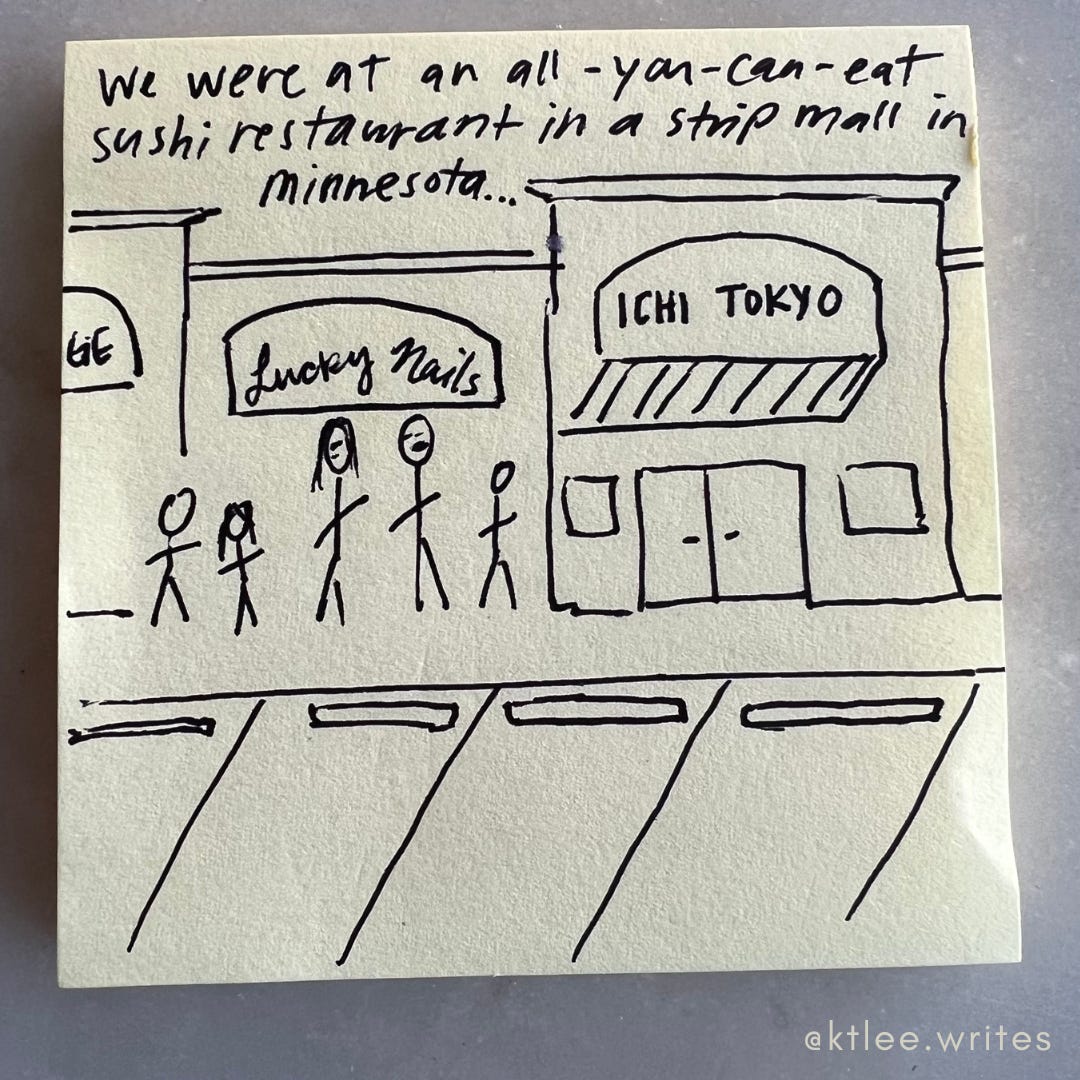
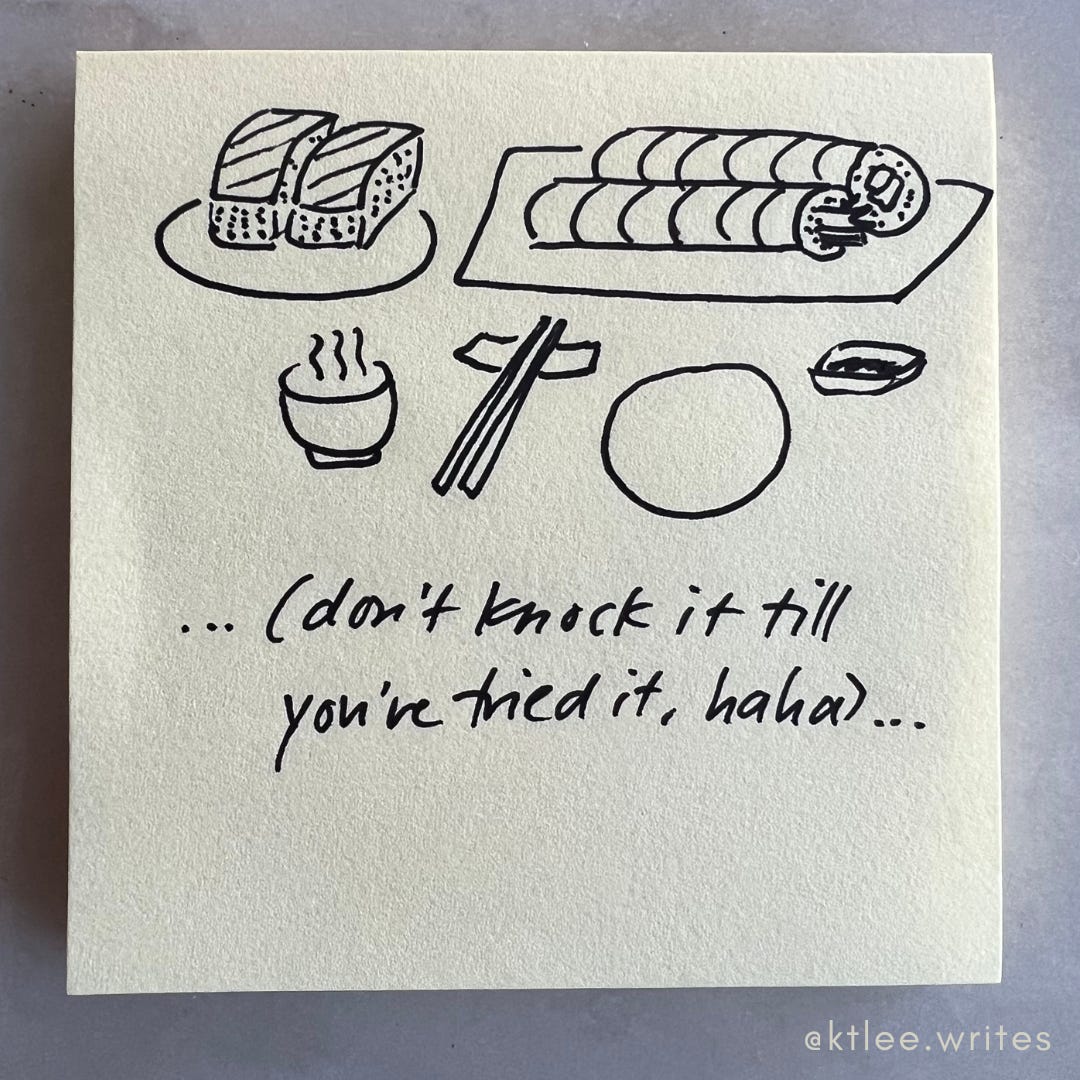
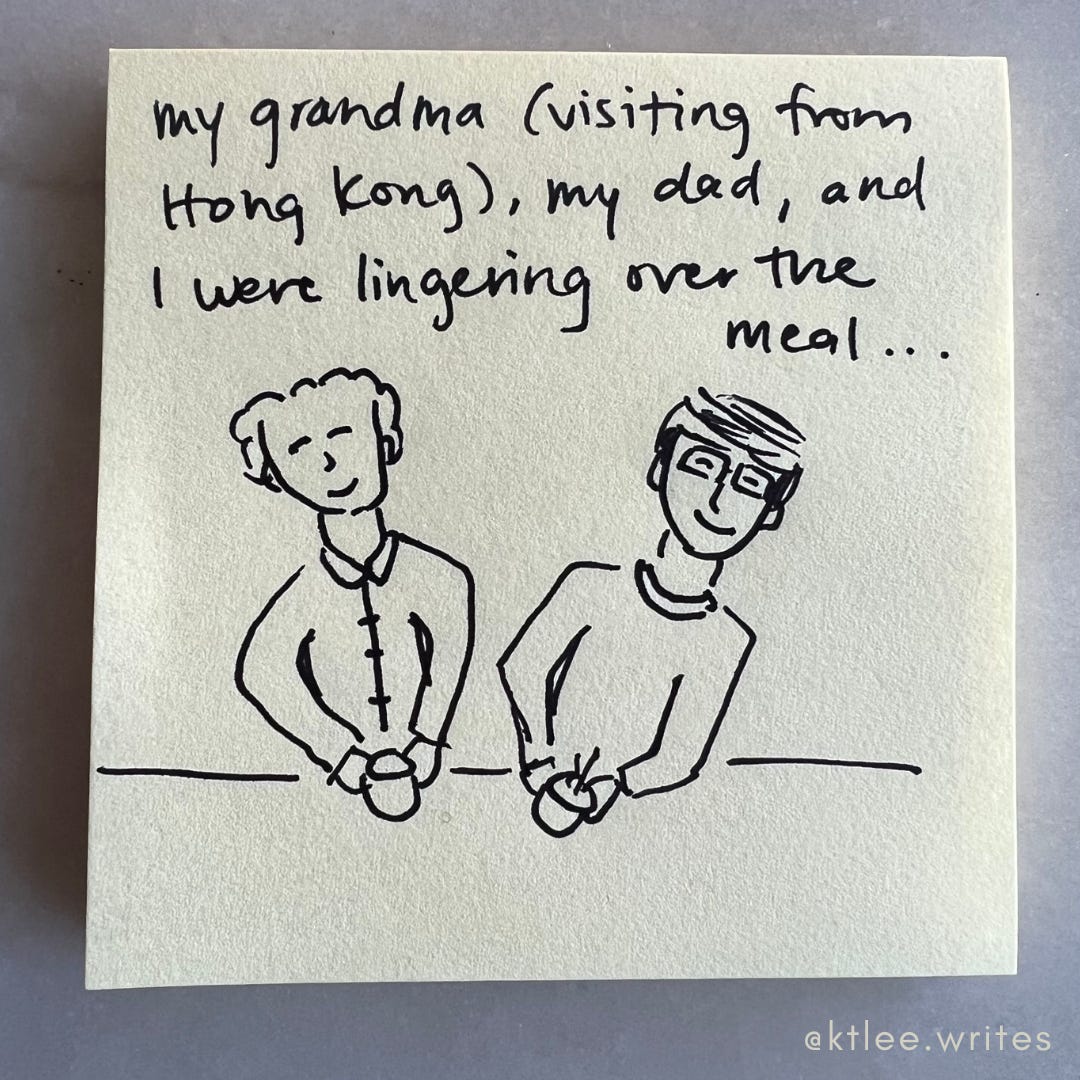

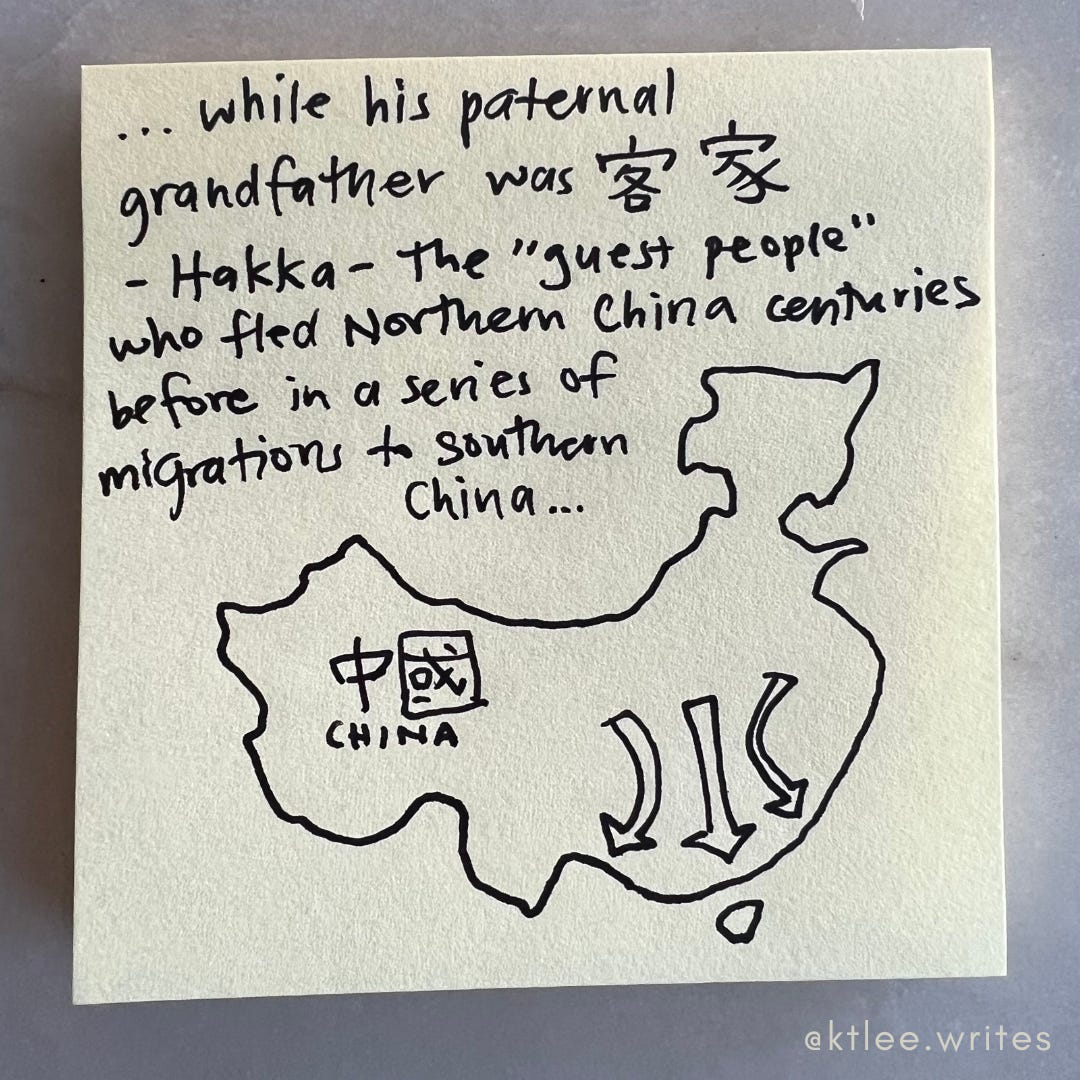
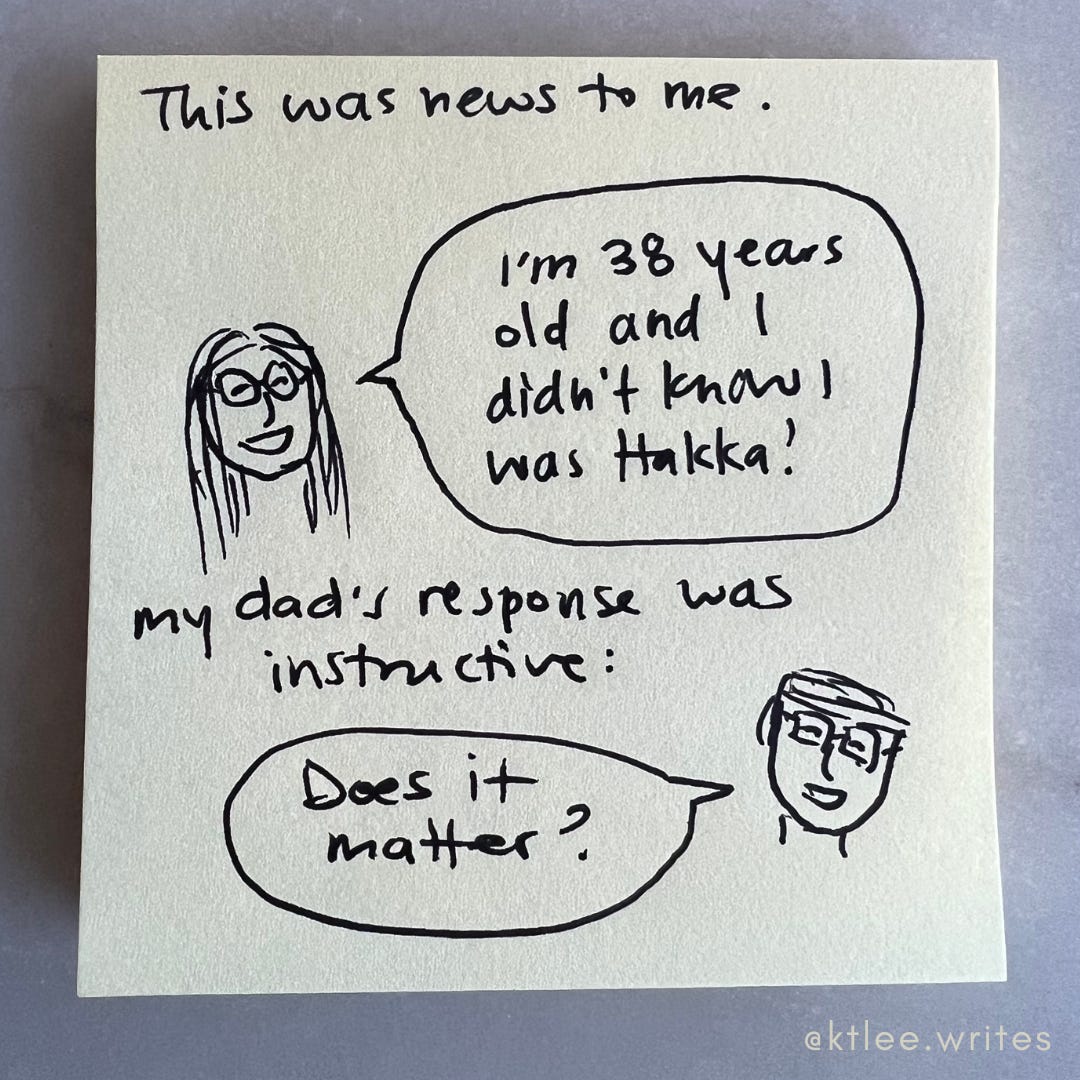
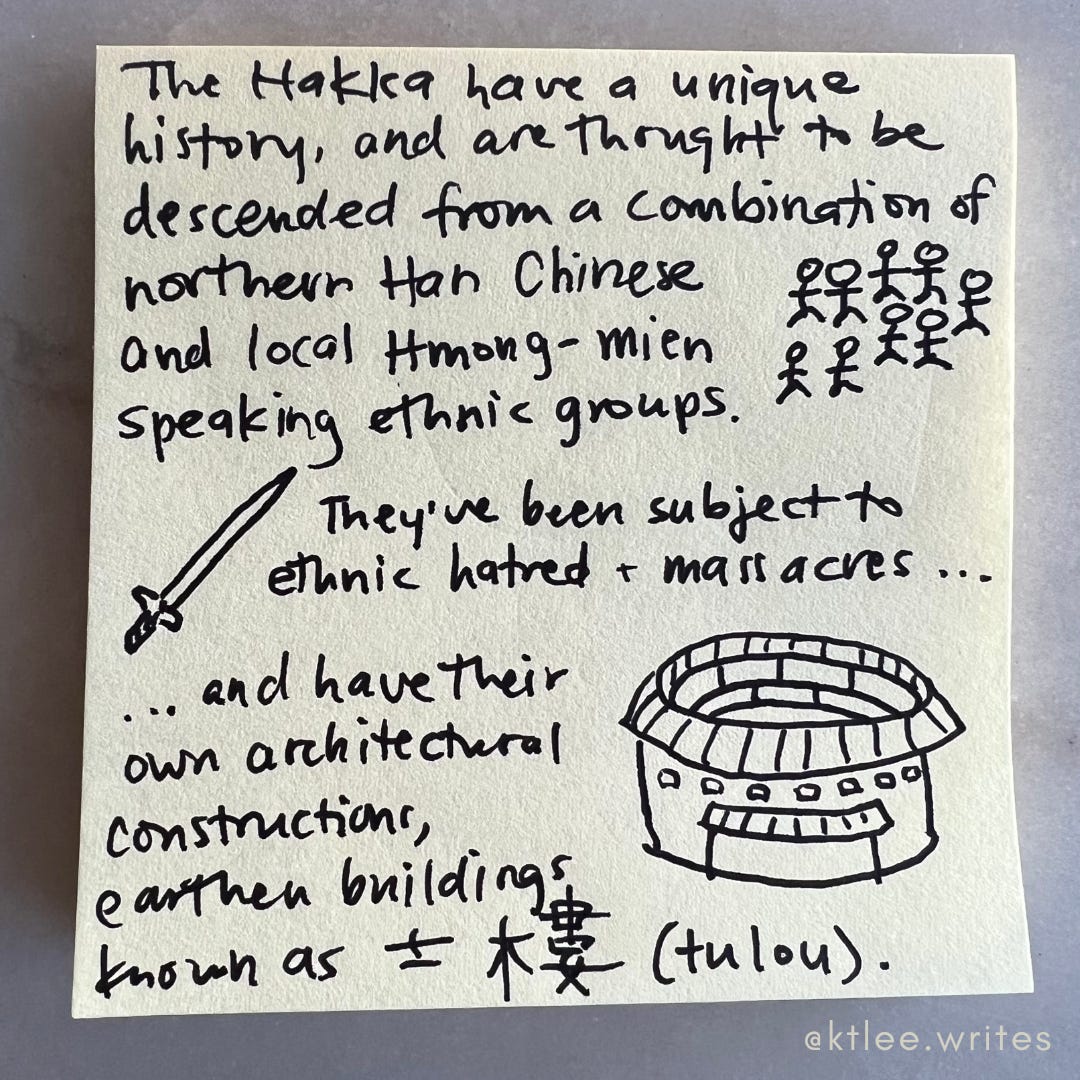

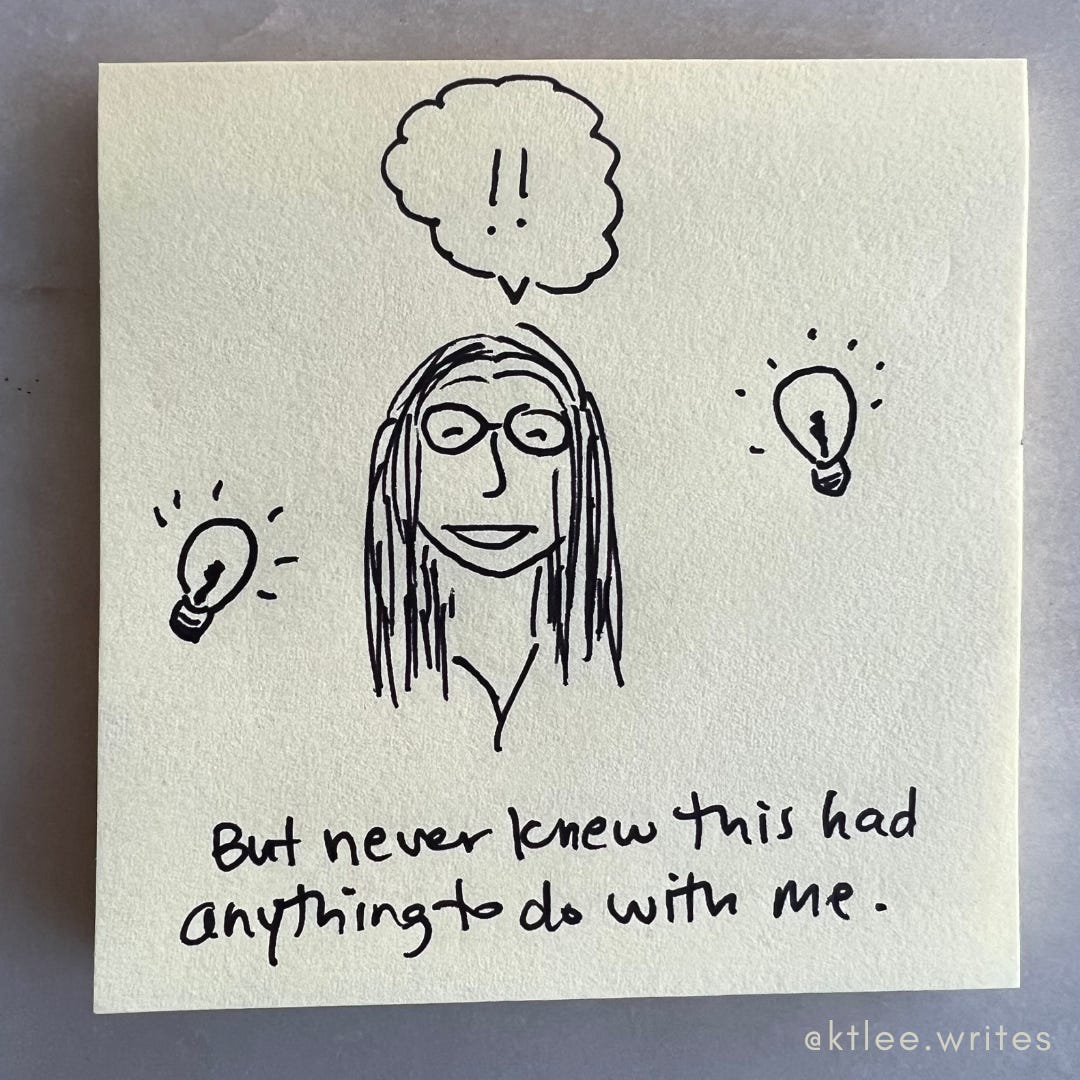
Thank you for sharing this part of you!
Love this so much! I love Hakka food, and I love that all the subway announcements in Taiwan are also in Hakka.